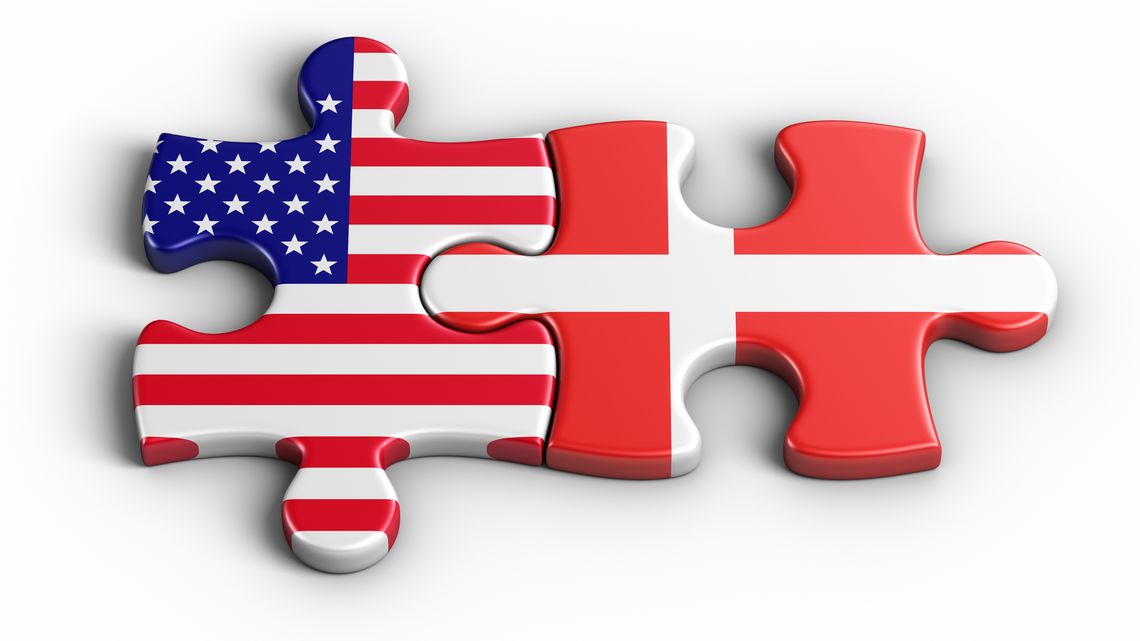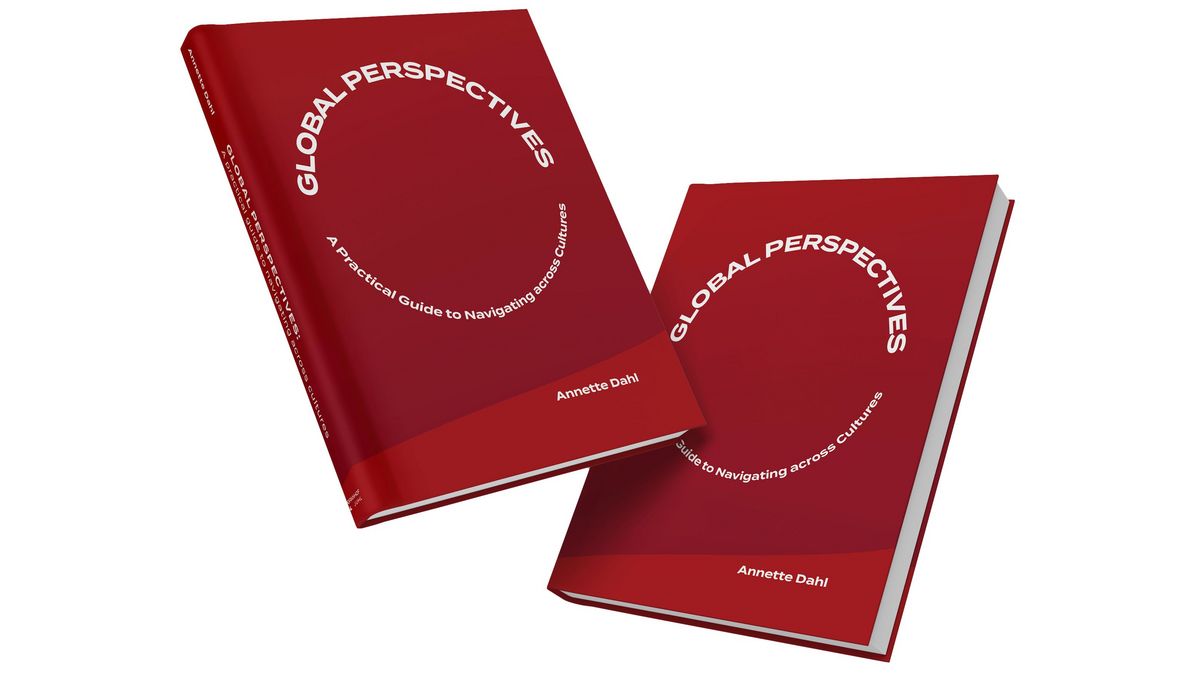
3 Conflicts Danes Face when Working with Americans: Tips from an American in Denmark
Kay Xander Mellish, a US-Danish dual citizen who has worked with major US and Danish corporations, offers her input on their business differences in presentations and counselling sessions for C3.
The first mistake many Danes make when working with Americans is assuming they know what they’re doing.
They’ve watched American movies and TV shows since childhood, and maybe they’ve got some great memories from a student year abroad in Nebraska or a family trip to Disneyland. So a lot of Danes figure that they have it all figured out when it comes to doing business with Americans. All they need to do is talk a lot louder and pretend to understand the rules of baseball and they’ll fit right in.
But the surface impression you might get of the USA and the actual USA are entirely different creatures.
Actually, the United States itself is 50 (or more) different creatures; not only the business culture but business laws can be entirely different in specific states or even specific municipalities.
A product or an approach that works great in Ohio could be a complete flop or even illegal in California, where the town of Santa Barbara recently proposed jail time for the distribution of plastic drinking straws.
What’s more, individual states and cities can contain a number of subcultures: Minnesota, a mostly rural state famous for its 19th century Scandinavian immigrants, also has thriving Somali and Hmong communities.
Nearby Wisconsin has two main metropolitan areas: the ultra-left-wing university town Madison and Milwaukee, whose suburbs are an ongoing source of prominent Republican politicians.
Coming from a monoculture like Denmark, it can be hard for Danish businesspeople to realize how big and diverse the US can be, and how precisely they will need to target their product or business in order to make it a success.
So in addition to some intense research before choosing a location and a marketplace, here are a few basic conflicts Danes hoping to do business in America should keep in mind:
Danish trust vs. American litigiousness
Trust, as we so often hear, is the basis of Danish culture.
When Danes trust their business partners, it feels good. Your word is your bond, contracts are brief and direct, and the hiring process can be casual. People in Denmark can be expected to do what they say they will do.
After all, if they don’t, the bad news will get around pretty quickly in a small market like Denmark!
Trust is not the basis of American culture.
First of all, the market is big enough for bad actors to be able to stay in business for quite a long time. Secondly, with so many different types of Americans, understanding of expectations can differ. What was really promised, in what time frame, and what will happen if it doesn’t get delivered?
Into the void have stepped American lawyers with enormous and hopelessly complicated contracts - documents written not to be understood, but so they cannot be misunderstood.
And when it comes to hiring in the US, you need the help of a local human relations professional who can make sure that people from every ethnic and racial group get a fair shake at the job, and that your hiring process takes visible and invisible disabilities into account.
Waltzing into the US, relying on handshake agreements, and hiring whomever took their fancy has turned out to be a painful experience for many Danish businesses.
Danish anti-authoritarianism vs. the American movie star boss
Ambitious young Danes like to say they don’t believe in Jantelov. They like to say that the idea of pretending you’re nothing special and no better than anyone else belongs to a bygone world of large Danish shipyards and weekly attendance at the local folkekirke.
But whether they know it or not, Jantelov has been bred into them since childhood. It was a core feature of their school days, when everyone was encouraged to work in groups and brighter children were taught not to excel, but to help their slower classmates.
What that means for adult Danes is that they often have trouble being a boss, or at least the type of boss that Americans expect.
An American boss may be friendly or imperious, but she sets the tone for her team and for her department. Her job is to energise and inspire, to set out clear guidelines for everybody to follow, and to take responsibility when things don’t go as expected.
She is, for all intents and purposes, an industrial version of a movie star, and the chance to work for an excellent boss is something many Americans see as an important step in their own career development.
Enter the Danish boss, who is uncomfortable with pre-eminence and authoritarianism, and just wants to be one of the guys.
He likes to give his employees the independence to do whatever they think is best, the independence he always enjoyed while working in Denmark. He figures they’ll let him know if they disagree with him about anything important.
Except they won’t, because he’s the boss, and Americans see it as the boss’ job to pilot the ship. If the ship seems to be sailing in circles, they probably won’t come to him and suggest that he reset course.
Instead, they will polish up their cv’s and go out looking for another job – or at least the talented ones will.
Danish modesty vs. American self-promotion
Selvironi, or having a sense of humor about yourself, is a treasured value in Denmark.
Not taking yourself too seriously is a sign of credibility and reliability for Danes: in my book How to Work in Denmark, I tell candidates for jobs at Danish companies to arrive for an interview with three stories about their work history – two in which they excelled, and one in which they made a total mess of things and learned an important professional lesson.
But Americans have a hard time understanding modesty, perhaps because they begin competing with each other from childhood and want to make sure they come out on top.
I’ve heard Danes who have interviewed Americans for jobs describe them as almost unbearable – So pushy! He kept telling me how great he was! Usmageligt!What they don’t understand is that this type of self-promotion is a survival mechanism in a relentlessly competitive society with very little safety net. Americans are taught how to "sell themselves" as a basic component of doing business.
On the flip side, Americans will not "get it" if Danes downplay their product, services, or skills with the sort of twee humility that would be picked up and admired by a Danish listener.
A Danish businessman who tries to be cute by saying he was "just lucky" enough to develop a high-tech product (like a real customer I once worked with) sounds like an idiot to an American audience. (What, did he just find it on his front lawn in the morning?)
Danes who want to do business with Americans will need to put on their big-boy or big-girl pants (a local expression) and explain to potential buyers precisely why their product is needed, useful, and better than anything else on the market, and why it should be purchased immediately.
To the modest Danes, this can make them feel a bit like the dreaded "used car salesman", but Americans are used to sorting through sales pitches and really don’t mind.
Just make sure you’re thoroughly ready to answer any questions about the product and have your pricing and approvals ready for an immediate deal if it materializes. Business in the US moves fast, and you might not get the opportunity again.
About Kay Xander Mellish
Kay Xander Mellish, a keynote speaker, is a US-Danish dual citizen based in Copenhagen.
She is the author of "Working with Americans: Tips for Danes" and "Working with Danes: Tips for Americans", which are also available in a combined flip book to present both sides of the story.
Previous books include "How to Live in Denmark: A Humorous Guide for Foreigners and Their Danish Friends" and "How to Work in Denmark: Tips for Finding a Job, Succeeding at Work and Understanding your Danish Boss".
All her books are available via Saxo.com and Amazon.com, and can be ordered in bulk through her website, with an option for branding with your corporate logo.
At C3 we work with Kay on cultural training, where our clients enjoy her sharp and entertaining analysis of both Danish and American culture.

